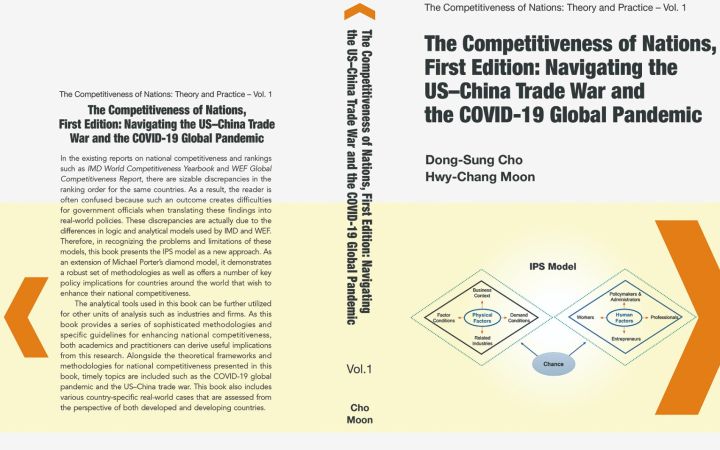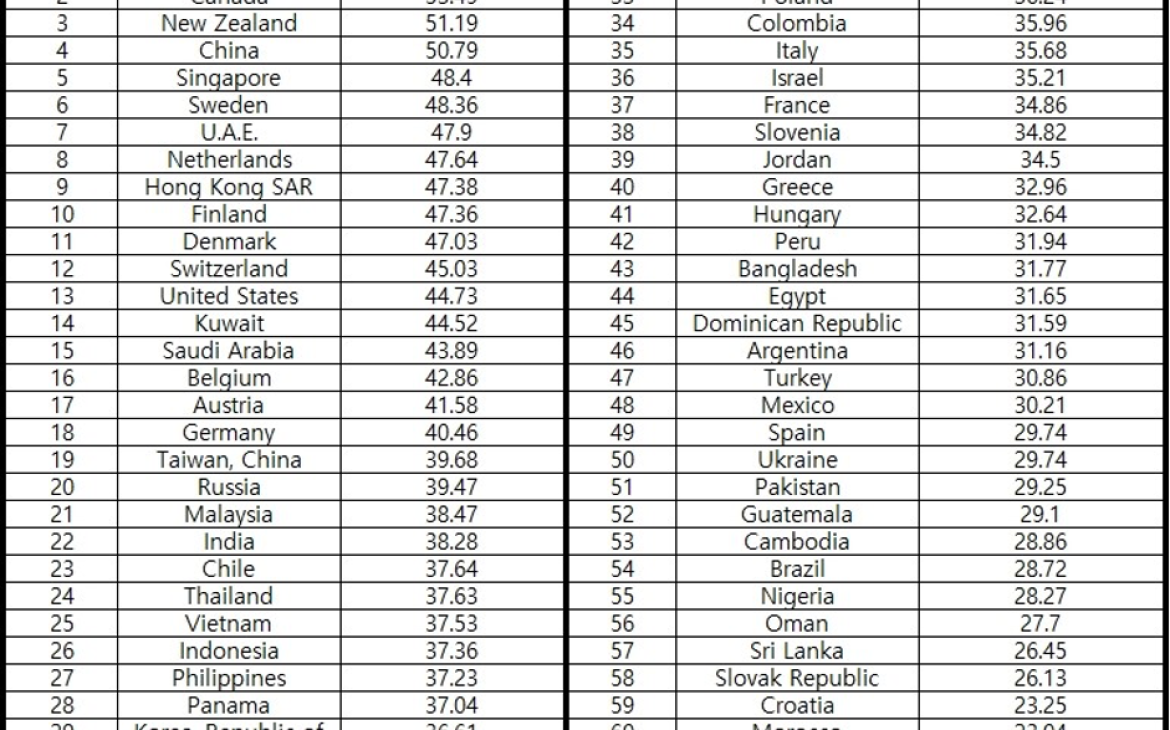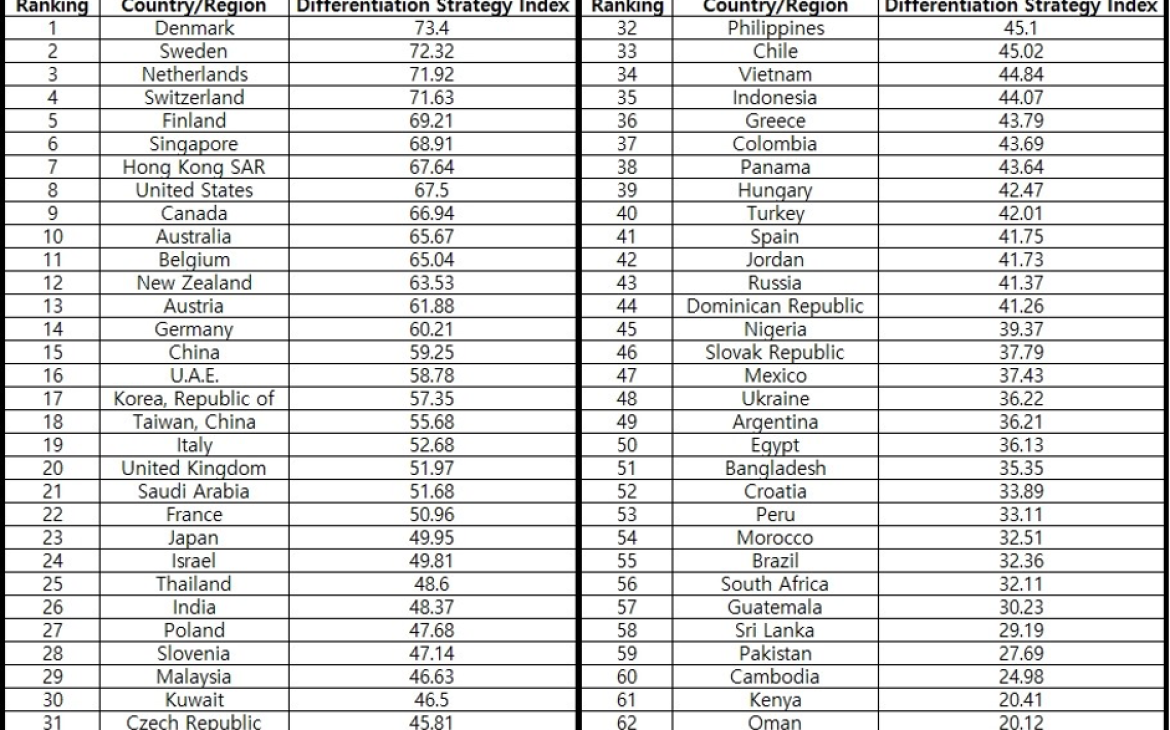UNITAR, the Institute for Industrial Policy Studies (IPS), and the Taylor Institute at Franklin University Switzerland (FUS), collaborate on National Competitiveness Report: Two rankings for each nation with low-cost strategy and differentiation strategy. The results of the IPS National Competitiveness Report were released on October 28, 2021, in a public conference of National Competitiveness organised by IPS and FUS, and co-hosted by UNITAR. UNITAR will be involved in fully contributing to the 2022 Report.
Three Models in National Competitiveness Studies
Currently, there are three institutions that announce their results on national competitiveness in Switzerland every year. IMD (The International Institute for Management Development) and WEF (The World Economic Forum) show only one ranking, while IPS Switzerland has two rankings based on cost leadership and differentiation strategies.
IMD is a Swiss business school that categorizes national competitiveness as a good business environment for global companies to invest in. In the IMD 2021 report, Malaysia, which has a good investment environment, ranked 25th out of 64 countries, a position notably higher than Japan’s 31st place. On the other hand, WEF is a Swiss non-profit corporation which measures national competitiveness in terms of the productivity of industries owned by individual countries. In the WEF 2019 report, which is the most up-to-date report for national rankings so far, Japan, which has high productivity, was ranked 6th out of 141 countries surveyed, much higher than Malaysia’s 27th place.
The IPS report presents a different approach. Unlike IMD and WEF, which evaluate only the resource conditions of each country without considering its national strategy, IPS divides the strategic options into two nationwide strategies: low-cost and differentiation. This can offer markedly different outcomes. The U.S. ranks only 13th if it uses a low-cost strategy, but rises to 8th with a differentiation strategy. By contrast, China ranks 4th if it uses a low-cost strategy, yet falls to 15th if it uses a differentiation strategy. The reason for such a difference is that the differentiation strategy is suitable for countries that can produce high-quality products while the low-cost strategy is suitable for countries with abundant resources.
Four types of countries are identified in this presentation. Type 1, such as Australia and Canada, has both abundant resources and high-quality production capacity. They are high in both low-cost and differentiation rankings. Type 2, such as France and Korea, is a high-quality production country. They are poorly ranked with low-cost strategy, but move up higher in the rankings with differentiation. Type 3, such as Saudi Arabia and Russia, relies on abundant resources. They are high in the low-cost ranking, but low in the differentiation ranking. Type 4, such as Kenya and Oman, does not have either abundant resources or high-quality production capacity. They are low in both rankings.
The IPS Methodology and Its Strategic Implications for Switzerland
To determine national competitiveness, IPS ranking uses Dong-sung Cho’s “9-Factor Model” which consists of four physical factors, four human factors, and opportunity conditions. The physical factors consist of production conditions, management conditions, related industries, and demand conditions, and the human factors consist of workers, politicians and administrators, entrepreneurs, and professionals.
IPS also released more specific results of the 98 criteria which constitute the 9 factors in the model. By analyzing the elements, governments of the 62 countries can develop specific national strategies to enhance their respective rankings.
For example, Switzerland falls to 12th place when it uses a low-cost strategy, but rises to 4th place when it adopts a differentiation strategy. Such a dramatic change can be explained by the fact that Switzerland is already an advanced economy that can produce high-quality products. But Switzerland has a chance for further improvement in national competitiveness.
Looking at Switzerland's physical factors in the model, demand conditions (3rd), related industries (3rd), and business context (6th) are at the top, and factor conditions (39th) are at the intermediate level. Among the human factors, policymakers and administrators (3rd), entrepreneurs (8th) and professionals (4th) remain at the top, and workers (41st) remain at the bottom.
It would appear to be natural for Switzerland to improve the factors which are ranked low, such as factor conditions and workers. But such an effort would only enhance Swiss ranking with a low-cost strategy, which may not be ideal. The IPS model suggests that Switzerland could improve demand conditions among the physical factors, and the professional elements among the human factors. The IPS model further suggests such sub-factors as market size and quality to improve demand conditions, and personal competence and social context to improve the professional element.
Vice President Christoph A. von Arb of Franklin University Switzerland emphasized in particular the effective strategy of enhancing national competitiveness through university research. He stated: “Swiss universities are known for their excellence in fundamental research including public/private partnership projects. --- However, when focusing on “Science to Market” efforts, the rankings were pretty low… strategy matters.”
Professor Emeritus Hwy-chang Moon of Seoul National University, the leading researcher for the IPS project which uses his co-authored “Double Diamond Model” for global context, explained that Switzerland must undertake two approaches to preserve its high ranking with a differentiation strategy. Firstly, Switzerland needs to enable top-class entrepreneurs and professionals to work efficiently. Secondly, it needs to connect the nation’s portfolio of related industries with the global market for sustainable development.”
Future IPS Research Directors
Carlo Giardinetti, Dean of Franklin University Switzerland and Co-Director of the Taylor Institute, joins the IPS project as co-researcher. He states that the national competitiveness conference reports on the most important issues in each year, and that this year’s report covers the Covid-19 pandemic and US-China relations. Mr. Jonas Haertle, UNITAR’s Chief - Office of the Executive Director, also joins the IPS project as co-researcher. He says: “We will include Environment, Society, and Governance (ESG) in the 2022 report. Eventually, we may cover the issues of the 17 Sustainable Development Goals (SDG) in subsequent reports.”
World Scientific Publishing will publish the IPS Report 2021 as a book entitled, “The Competitiveness of Nations, First Volume: Navigating the US-China Trade War and the COVID-19 Global Pandemic.”
About IPS
The Institute for Industrial Policy Studies (IPS) is a government-approved research institute established under the auspices of the Ministry of Commerce, Industry & Energy (MOCIE) in 1993. IPS carries out empirical studies on worldwide industrial policies, advisory work on government organizations and consulting activities for corporate strategic planning. It also provides a range of education programs for government officials and business executives.
IPS regularly hosts seminars as well as symposiums that serve as venues for the presentation and sharing of results from major studies in order to advance the economy and management-related mindset of top managers, and operates the database of research findings for related parties to share knowledge and information. https://www.ips.or.kr/eng_ips.html.
For engagement in the IPS project, please contact: Yong-Ju Choi, Managing Director, IPS Switzerland (yjchoi@ips-s.org)
About the FUS Taylor Institute
The Taylor Institute at Franklin University Switzerland develops and manages Executive, Research and Graduate programs related to business and management. The Institute brings together a learning ecosystem made up of multi-stakeholders including Faculty, partner Universities, Business and Organizations, Thought Leaders and Think Tanks. The aim of the Institute is to prepare critical thinkers who are culturally literate, ethically aware, intellectually courageous and business savvy. We envision leaders that become responsible, compassionate, and collaborative in an increasingly complex and interconnected world. https://www.fus.edu/research/taylor-institute
About UNITAR
The United Nations Institute for Training and Research (UNITAR) is a principal training arm of the United Nations, working in every region of the world. We empower individuals, governments and organizations through knowledge and learning to effectively overcome contemporary global challenges. UNITAR was established in 1965 as an autonomous body within the United Nations with the mandate of enhancing the effectiveness of the work of the United Nations and its Member States. In 2020, UNITAR’s reach extended to more than 300,000 beneficiaries through mostly e-learning and webinars, face-to-face seminars and workshops, or other training-related events. (www.unitar.org)




